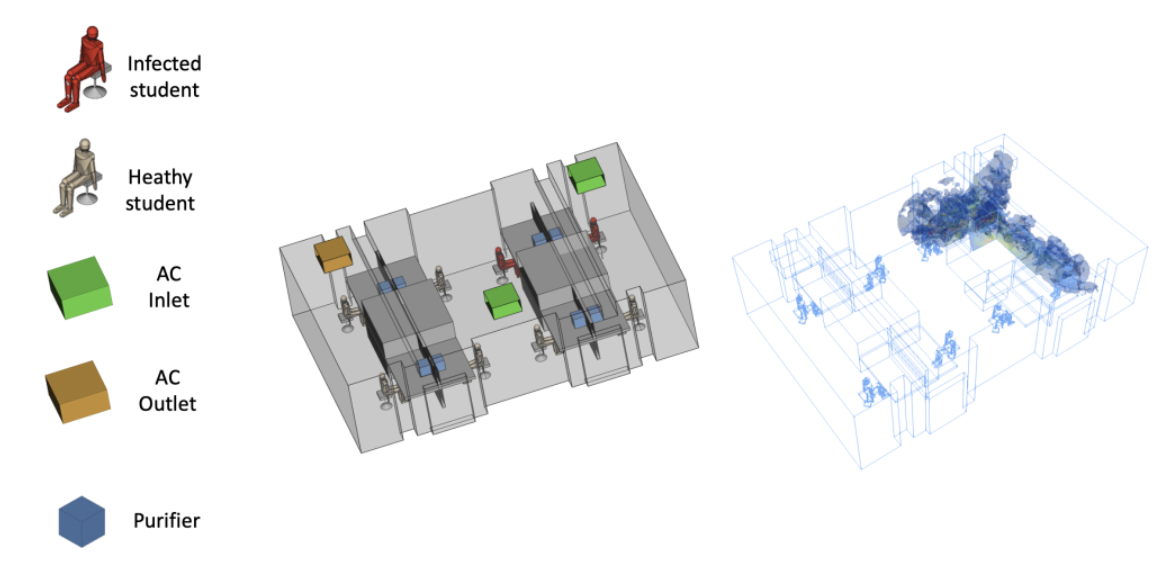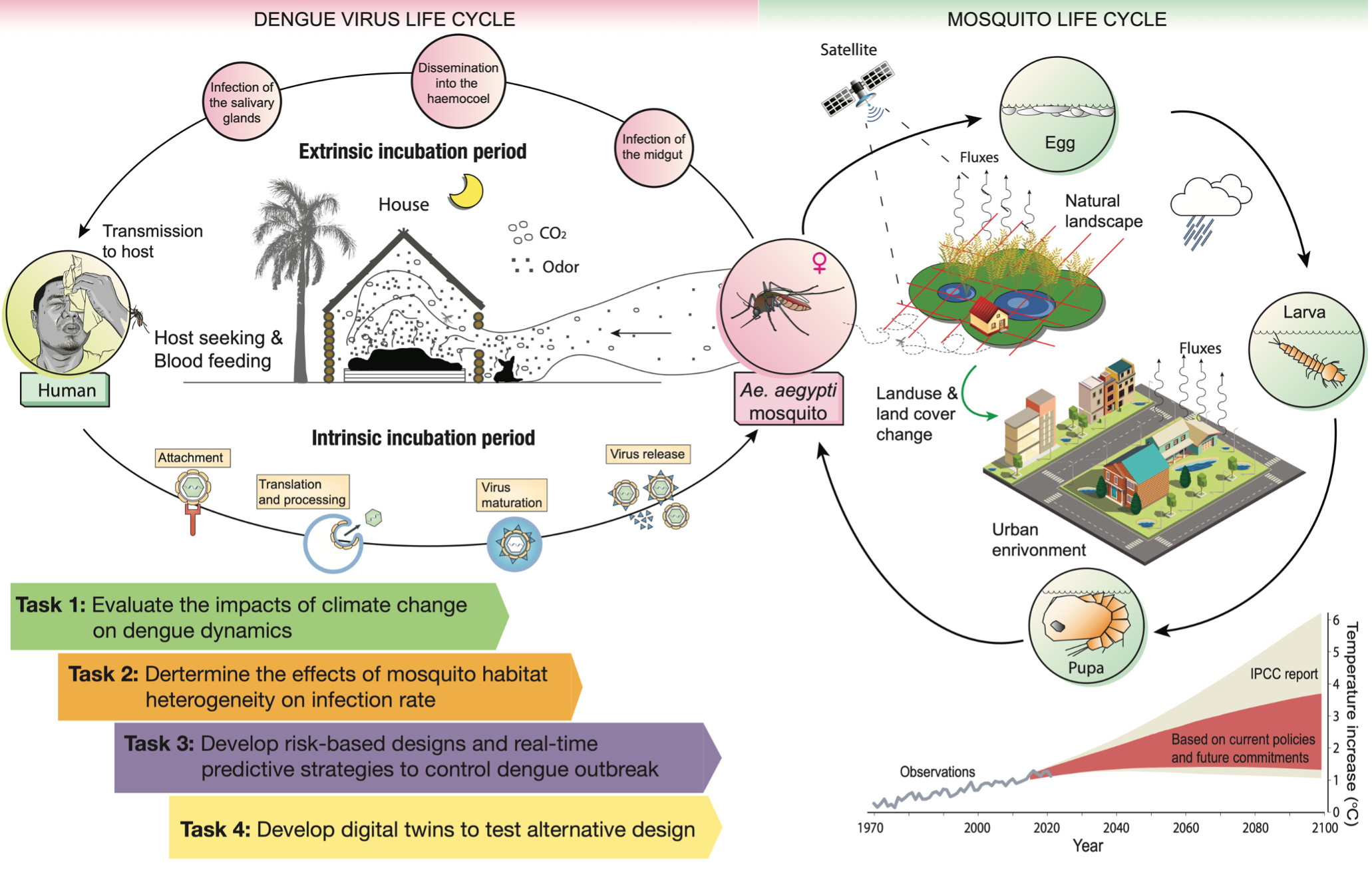Two projects led by CEE researchers have been selected for VinUni-Illinois Smart Health Center (VISHC) awards. The projects focus on different health risks that are present in a rapidly urbanizing Vietnam: one tackles indoor air quality, and the other addresses transmission of mosquito-borne viruses.
Smart Indoor Air Quality Control System for Healthier and Greener Buildings
The first project, led by CEE at Illinois assistant professor Vishal Verma and Le Duy Dung at VinUniversity, developed in response to the global COVID-19 pandemic, which demonstrated the ways in which indoor environments – particularly multi-user facilities such as hospitals, businesses and educational institutions – are hotspots for transmission of airborne pathogens. With this project, the researchers will develop a new approach to building safe indoor infrastructure to limit the transmission of chemical and biological contaminants.

The team will create a real-time virtual environment, called a digital twin, for multi-user facilities to assess and control chemical and biological contaminants in indoor environments. Using knowledge of the behavior of pathogens under different environmental conditions, real-time measurement of air quality and simulation of air pollutant transport, the virtual environment will analyze air quality data and allow end-users to test different interventions. Verma will also design an artificial intelligent management algorithm for controlling air quality. Three multi-user facilities at high risk of pathogen transmission will be used for the study.
Other members of the research team include Helen Nguyen and Jinhui Yan (CEE at Illinois), Kok-Seng Wong and Andrew Taylor-Robinson (VinUniversity), and Doan Mai Phuong (VinMec).
Envisioning Urban Environments Resilient to Vector-Borne Diseases: A One Health Approach to Dengue Management
The second project, led by Nguyen, Taylor-Robinson and CEE at Illinois professor Praveen Kumar, centers on ways to improve urban environments to reduce or eliminate the spread of vector-borne diseases. In particular, they will focus on the mosquito-transmitted Dengue virus, which infects millions of people worldwide each year. Incidences of Dengue infection are expected to worsen in the face of climate change.

In their project, the researchers will develop a modeling framework that considers multiple factors, including the connection between temperature and Dengue virus development, disease incidence and mosquito abundance data, and analysis of the impact of interventions on both. A large-scale model that describes airflow and thermal condition will be used to develop a digital twin of the urban environment, which will predict disease risk level and recommend intervention strategies. Ultimately, the team hopes that the project will provide a new way to conceptualize built urban environments that safeguard against the growing threat of vector-borne diseases driven by climate change.
Yan and Phuong are also members of this research team, along with Lei Zhao (CEE at Illinois), and Khoa Doan and Le Duy Dung (VinUni).
VinUniversity, located in Hanoi, and the Grainger College of Engineering formed the joint VISHC to conduct research on novel sensing and informatics to provide widely accessible health monitoring, screening and diagnostics for people all over the world. Each VISHC award is for a period of up to 10 years and will support up to five Ph.D. students and one postdoc, all from Vietnam.
Reposted by VISHC on 31 Oct 2023